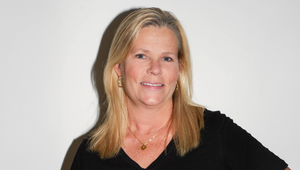
Gen Z Embraces Pragmatic Optimism, But Think World Seems “Fake”: Snapchat Study

Gen Z Australians embrace ‘pragmatic optimism’ -- with 46% reporting gratitude in 2025 despite economic pressures, new Snapchat research reveals.
The study of 3,000 young Australians, conducted with Crowd DNA, shows a stark reversal from 2024, when 80% felt negative about the world.

A striking 78% believe the world seems increasingly 'fake', driving demand for authentic connections. This manifests in spending habits, with 44% prioritising saving, 74% preferring small daily splurges over major purchases, and only 28% considering home ownership a current priority.
Stephanie Winkler, head of agency at Crowd DNA, said, “We’re witnessing ‘pragmatic optimism’. Gen Z acknowledges global challenges but focuses on what they can control. Their baseline normal is perpetual crisis, yet they’re adapting.”
The research also uncovered an emerging thrifty mindset. 61% of Gen Z opts for ‘good dupes’ over luxury items, and 55% actively seek affordable high-quality alternatives.
The influence of peers on decision-making was also a key takeaway of the study, with 70% saying close friends shape their choices, while 64% buy products endorsed by peers.


Ryan Ferguson, managing director at Snap Inc. Australia and New Zealand, noted, "Over 90% of Australian Gen Z are active on Snapchat monthly – they're not here to scroll mindlessly, but to connect authentically.
“Gen Z will soon become the largest generational cohort in the workforce -- their USD$10 trillion spending power makes them critical for brands.”
Stephanie added, "Brands that join Gen Z's daily conversations will build lasting loyalty."
The study also highlights generational divides -- while 28% of Gen Z prioritise buying a house, this trails millennials' 34% homeownership focus. The gap widens in health priorities; 41% of millennials rank mental well-being as a top concern, versus just 29% of Gen Zs.
Among Gen Z respondents, nearly half (45%) leverage social platforms -- predominantly Snapchat -- to coordinate shopping trips with friends. This behaviour reflects their broader trend of collaborative consumption, where 32% use apps to create shared shopping experiences.

















